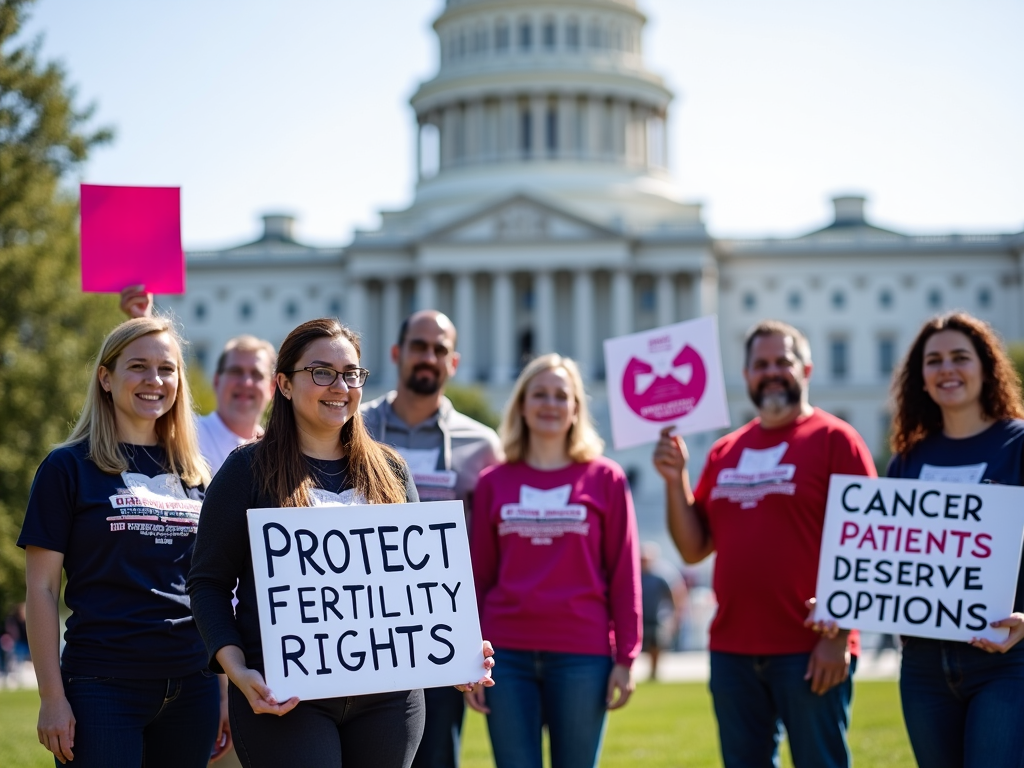State Laws and Fertility Preservation: What You Need to Know
March 11, 2025, 7:52 a.m.
Fertility preservation is a lifeline for many, especially cancer patients facing treatments that threaten their ability to have kids. State laws shape how easy—or hard—it is to access these services. This article dives into State Laws and Fertility Preservation: What You Need to Know, focusing on insurance coverage and real experiences.

What Is Fertility Preservation?
Fertility preservation means saving eggs, sperm, or reproductive tissue for future use. It’s a big deal for people whose fertility might be harmed by medical treatments like chemotherapy. For cancer patients, it’s a chance to keep the dream of a family alive.
Here are the main ways to do it:
- Egg Freezing: Harvesting and freezing eggs.
- Sperm Freezing: Collecting and storing sperm.
- Embryo Freezing: Creating and freezing embryos from eggs and sperm.
- Ovarian Tissue Freezing: Removing and freezing ovarian tissue.
Each option fits different needs, depending on your situation.

How State Laws Affect Fertility Preservation
State laws decide who gets help paying for fertility preservation. Some states step up for cancer patients, while others leave them on their own.
States with Coverage Laws
As of 2023, these states require insurance to cover fertility preservation for cancer patients:
- California
- Connecticut
- Delaware
- Illinois
- Maryland
- New Jersey
- New York
- Rhode Island
In these places, insurance must pay for things like egg or sperm freezing if treatment might cause infertility.
States Without Mandates
In states without laws, coverage isn’t guaranteed. Patients often face huge bills—sometimes thousands of dollars—for these services.

Figuring Out Insurance Coverage
Navigating fertility preservation insurance coverage for cancer patients can feel like a maze. Here’s how to tackle it:
- Check Your Policy: Look for fertility preservation details or call your insurer.
- Talk to Your Doctor: They can prove it’s medically necessary.
- Push Back if Denied: Don’t give up—ask for help from advocacy groups.
No state law? Try these:
- Look for optional coverage in your plan.
- Seek financial aid from groups like Livestrong Fertility.
- Raise funds online through crowdfunding.

Real Stories from Cancer Patients
Hearing from others makes this real. Here’s what some have shared:
- Sarah, 28, California: 'Breast cancer hit me hard, but California’s law covered my egg freezing. It gave me peace during chaos.'
- Mike, 35, Texas: 'No law in Texas meant I paid for sperm freezing myself. It was tough, but I’d do it again.'
- Emily, 22, New York: 'Freezing my eggs before chemo felt empowering. New York’s law made it possible.'
These experiences show how state laws shape lives.

What’s Next for Fertility Laws?
Things are changing. More people see how vital fertility preservation is, especially for cancer patients. Advocacy is pushing states to act.
In 2022, some states tried passing coverage laws—not all worked, but the effort grows. You can help by sharing your story or supporting fertility rights groups.

Tips for Patients
Facing infertility risks? Here’s what to do:
- Research Your State: Know your laws and options.
- Act Fast: Some treatments can’t wait, so talk to your doctor early.
- Find Support: Connect with others who’ve been there.
Knowledge is power in this journey.

Why It Matters
Cancer is tough enough without losing your chance at a family. State laws can ease or add to that burden. Where you live shouldn’t decide your future—but right now, it does.

Summary
State Laws and Fertility Preservation: What You Need to Know is about understanding your options. Some states cover fertility preservation for cancer patients, others don’t. Know your rights, explore resources, and advocate for change. Your future family might depend on it.
